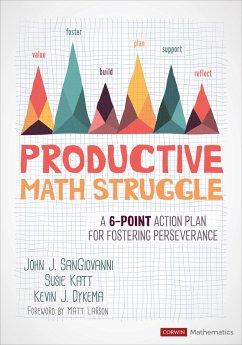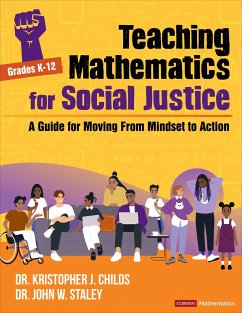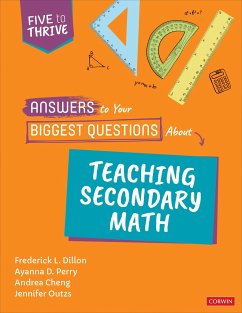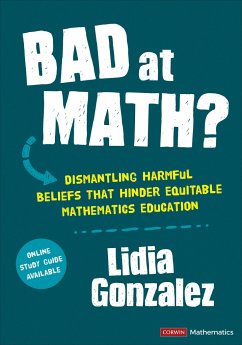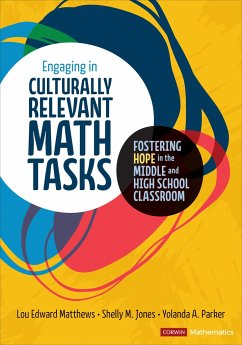Nicht lieferbar
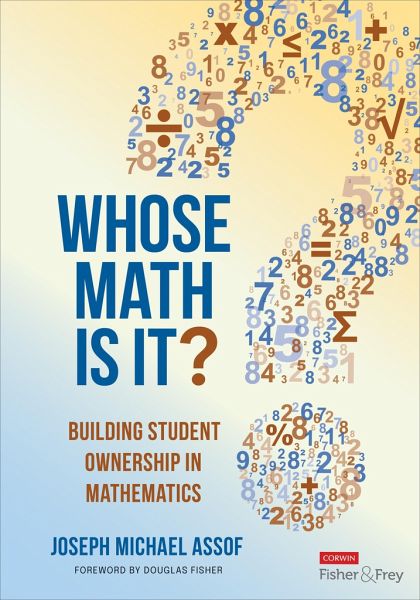
Whose Math Is It?
Building Student Ownership in Mathematics
Versandkostenfrei!
Nicht lieferbar
Foster Confidence and Ownership in Every Math Student When it comes to math, does it feel like some students embrace problem-solving with agency and ownership while others are confused-or simply along for the ride? How do educators bridge that divide to develop competence, confidence, and ownership in every student? The answers lie in establishing clear and effective measures for success. Steeped in the principles of success criteria, Whose Math Is It? provides educators with everything they need to create a classroom environment where students feel empowered to step up and take the lead. Divi...
Foster Confidence and Ownership in Every Math Student When it comes to math, does it feel like some students embrace problem-solving with agency and ownership while others are confused-or simply along for the ride? How do educators bridge that divide to develop competence, confidence, and ownership in every student? The answers lie in establishing clear and effective measures for success. Steeped in the principles of success criteria, Whose Math Is It? provides educators with everything they need to create a classroom environment where students feel empowered to step up and take the lead. Divided into two parts, this must-read guide first defines what success looks like for math students, then provides the research-based best practices teachers can use to help students take control of their learning. Learn how to: * Define and establish effective success criteria in a mathematics classroom * Implement a variety of strategies to support student ownership and success * Develop class-wide social norms specific to math * Promote metacognition through self-regulated learning, self-assessment, and feedback * Reinforce student ownership through structured peer interactions and collaboration Whose Math Is It? is an essential resource for K-12 math teachers who want to empower their students to actively own their mathematics learning. By emphasizing the importance of success criteria, promoting self-regulated learning, and developing math-specific social norms, this book provides practical strategies for creating an environment where when asked, "Whose math is it?" every student can emphatically respond: My math!




